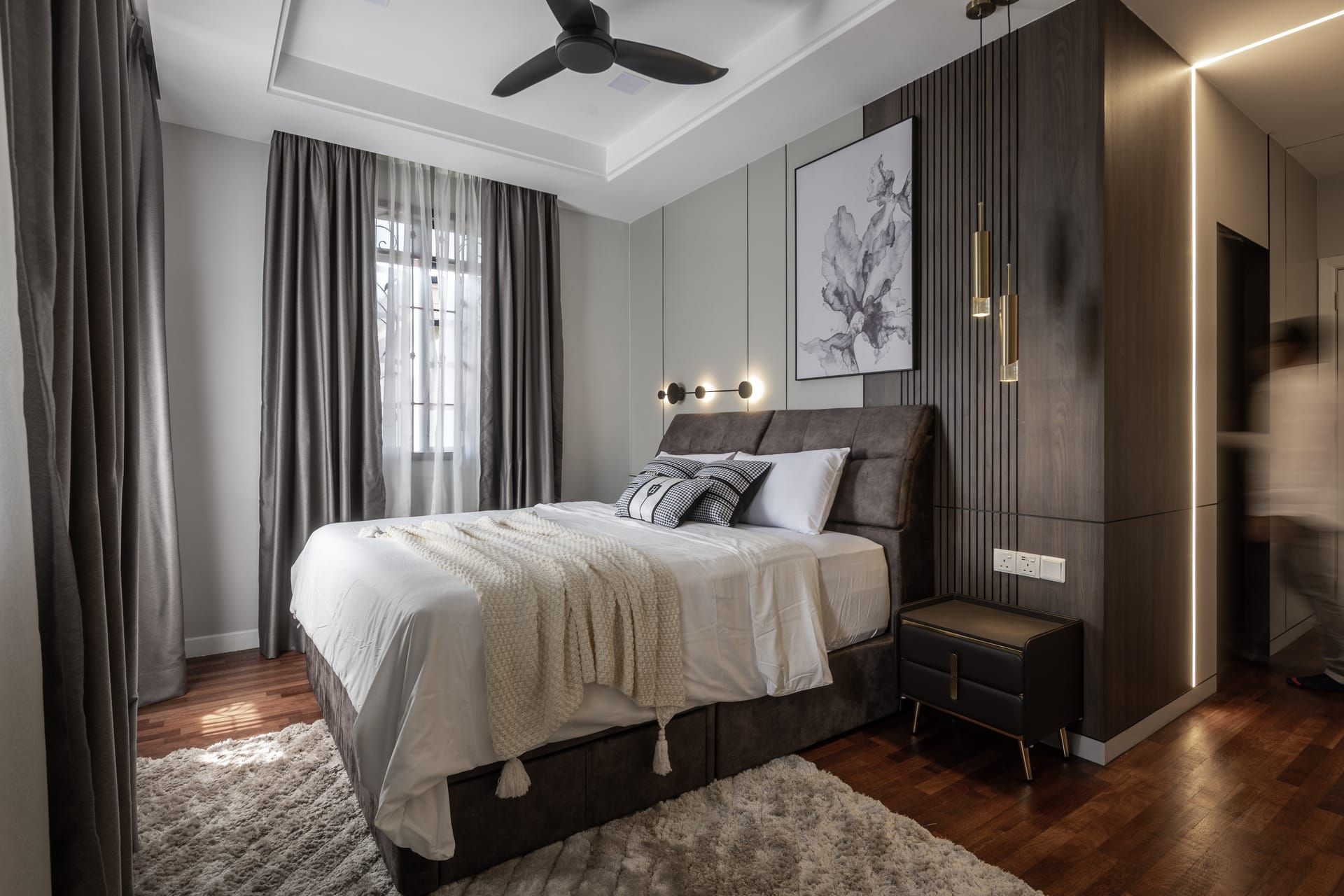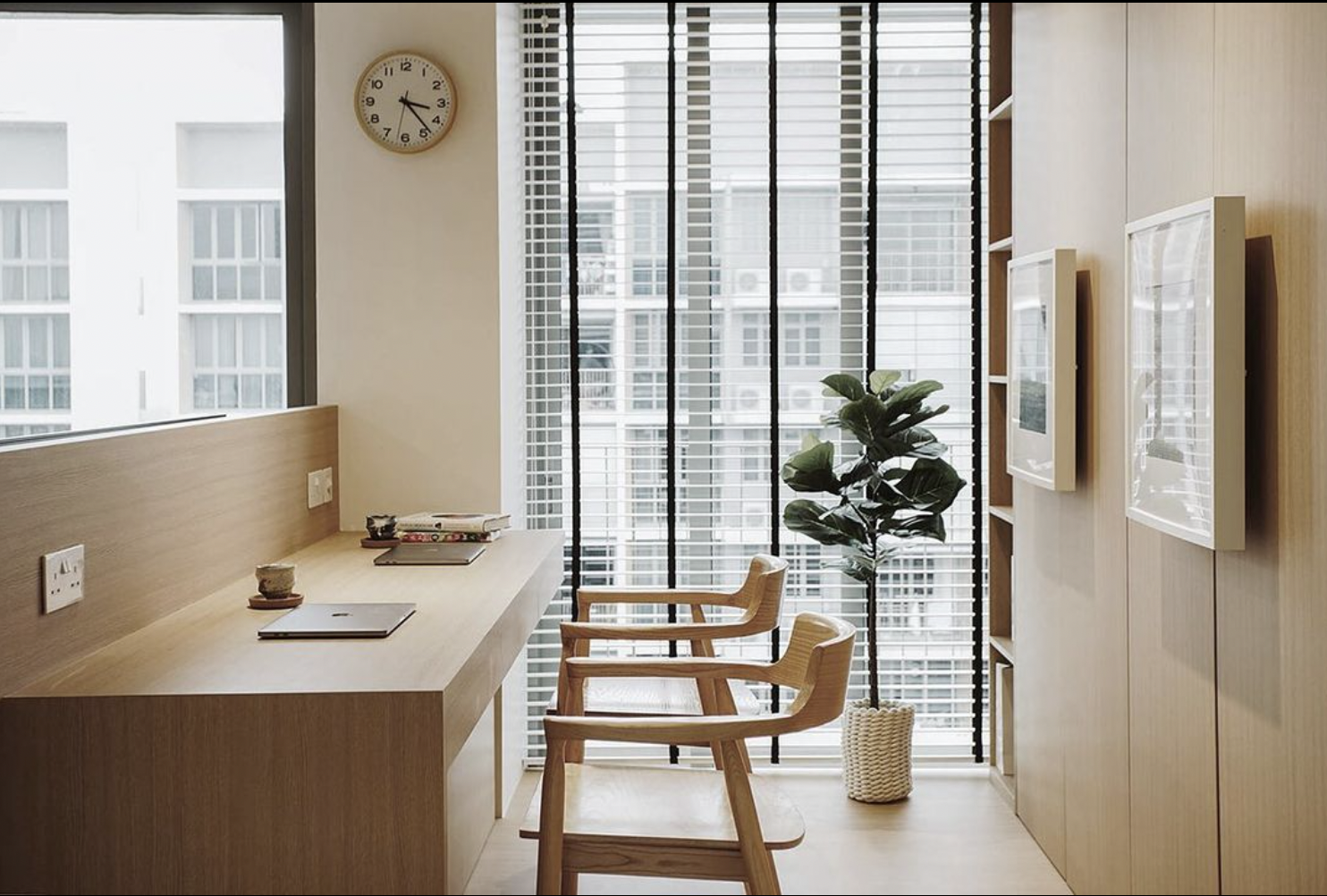Far beyond matching cushions and paint swatches, interior design today has become a visceral art—what we might call an emotional compass. Our spaces are no longer just places we live in; they are places we feel in. The textures we touch, the tones we wake up to, the corners we linger in—they all form a kind of unspoken language that shapes within the homes.
In a time when our homes double as offices, sanctuaries, and stages for everyday rituals, the mood of a space matters more than ever. So, let’s ask the question that really counts: what’s your interior mood?
The Rise of Moody Interiors
Dark rooms are no longer considered dreary. They’ve become soulful, cinematic, and deeply immersive. Moody interiors have made their way into modern homes with palettes of forest green, aubergine, oxblood, and charcoal from living rooms to bathrooms. These tones add character and intimacy, offering a space that feels cocooned rather than closed off.
How to Do Moody Right (Without Going Full Dungeon)
A moody interior that is done well can feel cinematic—like stepping into a noir film or a secret library tucked away behind a velvet curtain. But the key is balance. Here’s how to nail the look:
- Embrace a single hue. A deep navy study, with matching velvet sofas and dark-stained shelving, feels intentional and enveloping—especially if the rest of the home leans light.
- Prioritise texture. Matte plaster, aged leather, brushed metals and soft velvets introduce quiet complexity. These materials give life to shadows and allow light to shift gently.
- Think in layers. Moody rooms love flickering candles, sculptural lamps, and wall sconces that cast dappled light.
- Use design as punctuation. Doors painted in richer tones, bold tapestries, or walls finished in dusty limewash can change the pace of a room.
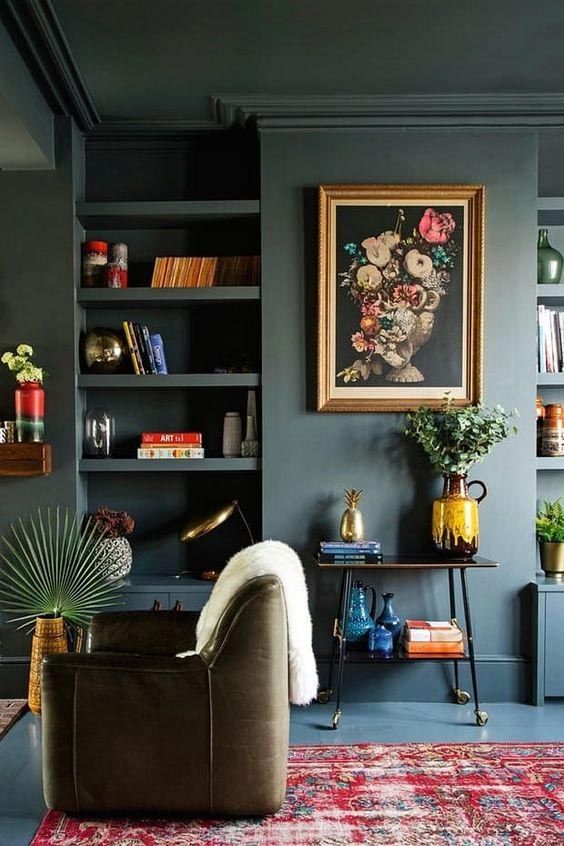
Earthy Interiors Is A Call to Nature
If moody interiors are built around depth, earthy ones are grounded in ease. These homes feel rooted, calm, and full of breath. They draw from the tones of stone, clay, moss, and sun-drenched wood—colours that feel familiar even if you can’t name them.
There’s an appreciation here for the imperfect and the handmade. Rattan chairs, raw timber, sun-bleached linen and ceramic bowls with uneven glazes. It’s not about putting nature into the home. It’s about allowing the home to feel like part of nature.
What makes it work:
- A palette with weight and warmth. Olive green, terracotta, tobacco, rust, ochre. These tones don’t shout, but they linger.
- Biophilic design. Not just adding plants, but using natural materials, organic shapes, and earthy textures to create a sense of wellbeing. There’s science behind it too—spaces that echo nature help lower stress and improve focus.
- Tactility over polish. Jute rugs, linen cushions, and lime-plastered walls. Surfaces you want to reach out and touch.
- Light that settles. Warm, filtered light through linen shades or tall grasses softens every corner.
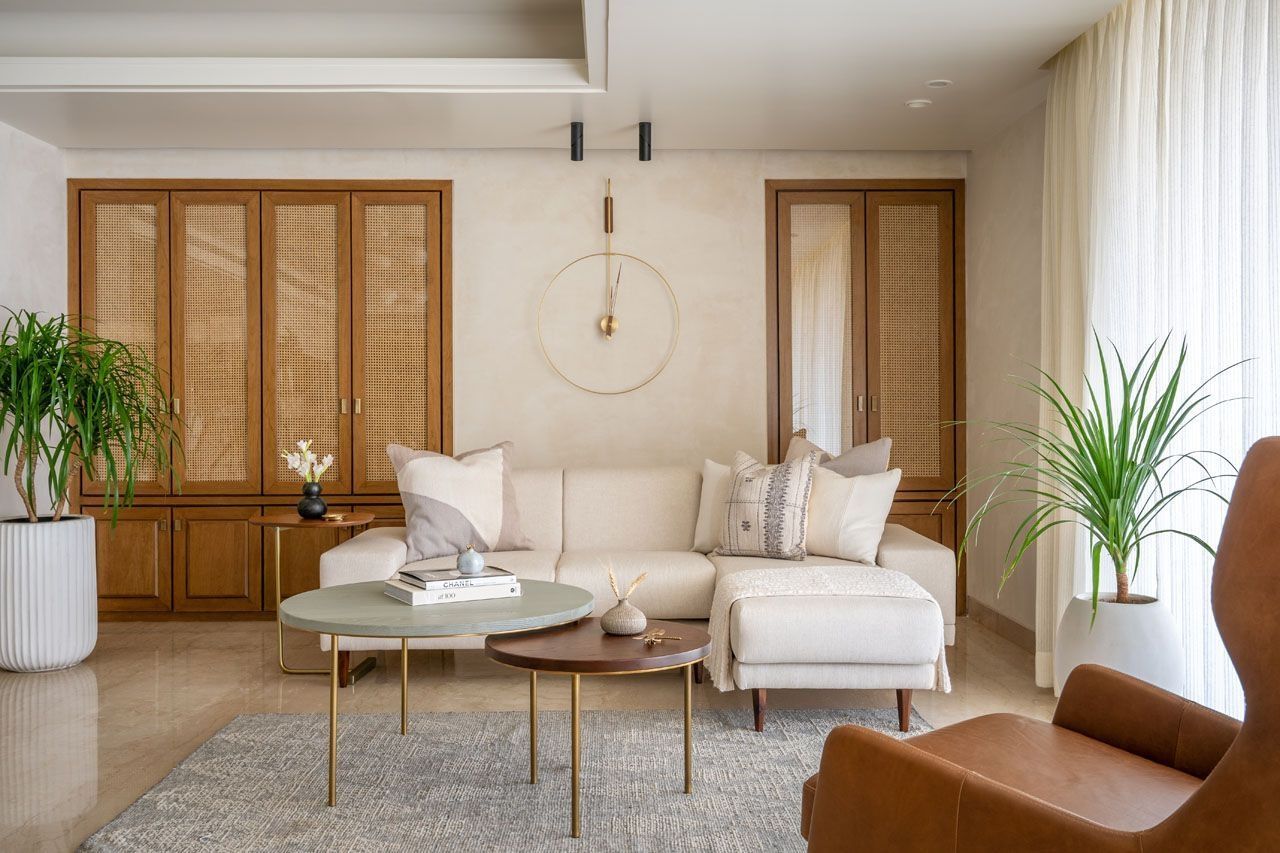
The Dreamy Rooms That Float
Some spaces are built like lullabies. Light, soft, and filled with quiet nostalgia. Dreamy interiors exist in this in-between state—a gentle play of light and shade, texture and tone.
The palette leans towards creamy whites, blush pinks, lilacs, and washed-out blues. The materials are soft, often curved, with a romantic touch that isn’t overly sweet. Think muslin curtains drifting in the breeze, checkered tiles in muted hues, a pearlescent ceramic vase catching golden hour on a windowsill.
Some dreamy touches to try:
- Let the light guide the room. Opt for sheers over blackout, and look for materials that reflect light softly rather than sharply.
- Focus on subtle storytelling. Built-in bookshelves beneath rustic beams, a painted ladder leaning against a whitewashed wall, a single floral detail that feels remembered rather than placed.
- Balance old and new. Vintage mirrors, soft archways, and cloudlike chairs paired with modern elements keep it grounded.
- Introduce checkerboard floors in muted tones. They bring gentle rhythm without stealing focus.
- Swap tiles for slabs. Especially in bathrooms, slabs feel more serene and reduce visual clutter.
- Embrace complex, softened hues. Think: mossy green, deep rust, or softened magenta—rich in tone but easy on the eye.
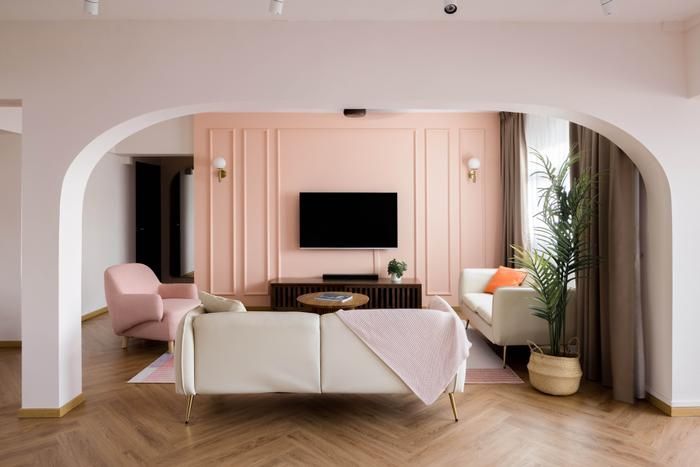
You don’t need to choose just one. A home doesn’t have to stay within a single mood. It can shift, room to room, moment to moment. A moody bedroom for late-night thoughts. An earthy kitchen filled with sun and scent. A dreamy reading corner where time slows down.
The best interiors aren’t about rules or categories. They’re about resonance. About creating spaces that mirror who you are, how you feel, and where you’re heading. So, what mood are you drawn to now?
